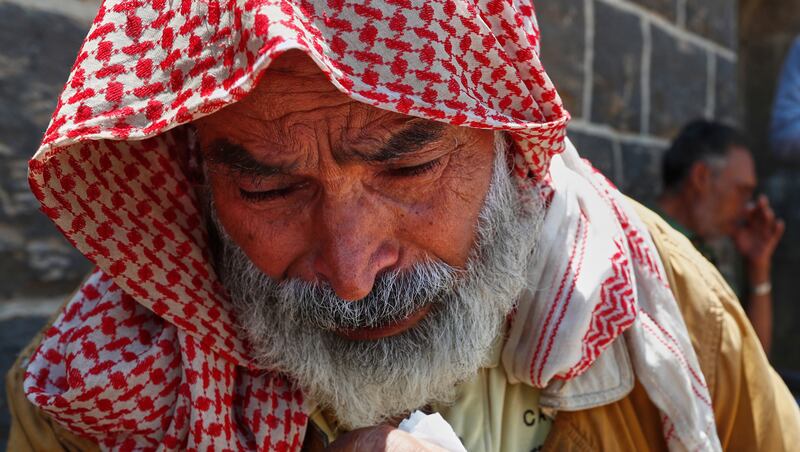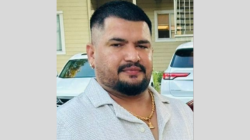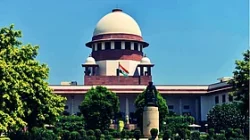Ceasefire in Suwayda Brings Temporary Relief Amid Ongoing Tensions
After a week of intense violence that left hundreds of Druze civilians and fighters from the Druze, Syrian, and Bedouin communities dead, the situation in the southern city of Suwayda appears to have stabilized. The Syrian government announced that clashes had ceased, marking a significant development in the region.
On Saturday, an agreement was reached between the government, Druze groups, and Bedouin tribes to establish a ceasefire. According to reports, this truce seemed to be holding, although communication with the province remained challenging. On Sunday, there were no reports of gunfire in Suwayda, indicating a possible reduction in hostilities.
Syria’s Interior Minister Anas Khattab stated on social media that the Internal Security Forces had successfully calmed the situation following their deployment in the northern and western areas of the province. He noted that the forces managed to enforce the ceasefire within Suwayda, creating an environment for a prisoner exchange and the gradual restoration of stability across the region. However, as of now, the prisoner exchange has not yet taken place.
The U.S. has expressed concern over the violence and criticized Israel’s involvement in the conflict. Tom Barrack, the U.S. ambassador to Turkey and special envoy for Syria, acknowledged the ceasefire on social media, emphasizing the importance of a complete exchange of hostages and detainees. He also criticized Israel’s intervention, calling it poorly timed and complicating regional stability efforts. Barrack added that the U.S. was not consulted regarding Israel’s recent strikes against Syria, which he described as Israel’s own self-defense matter.
President Donald Trump has shown support for the interim Syrian government, which took power after ousting Bashar Assad. In May, Trump announced plans to lift all U.S. sanctions on Syria, giving the country a chance to rebuild. Meanwhile, U.S. Secretary of State Marco Rubio urged the Syrian government to use its forces to prevent violent jihadists from entering Suwayda and carrying out massacres.
Origins of the Conflict
The fighting in Suwayda began when tensions escalated between the Druze and Bedouin communities. Over 300 people were reportedly killed during the conflict. In response, Israel launched airstrikes against Damascus and Syrian government forces, citing the need to protect the Druze community. Israeli Prime Minister Benjamin Netanyahu stated that the strikes aimed to prevent the militarization of Syrian forces near Israel’s northern border and to protect the Druze in the Druze Mountain region.
The Syrian government condemned the Israeli strikes, with interim President Ahmad Al-Sharaa accusing Israel of attempting to create chaos in the country. The Syrian government had previously intervened in the violence, fighting alongside the Bedouins before withdrawing due to the ceasefire agreement.
Humanitarian aid was sent into the area following the ceasefire. Interim President Al-Sharaa urged the Bedouins to leave the city, stating they could not replace the state’s role in handling the country’s affairs and restoring security. He thanked the Bedouins for their heroic stances but demanded full compliance with the ceasefire and the state’s orders.
Understanding the Druze Community
The Druze are a Middle Eastern ethnic group with roots tracing back to the 11th century. Their religious beliefs blend elements of Islam, Hinduism, and classical Greek philosophy. Unlike other groups such as the Kurds, who are largely Muslim, the Druze follow an esoteric, monotheistic religion that incorporates aspects of Judaism, Christianity, and other philosophies.
There are over 1 million Druze worldwide, with the majority living in Syria and Lebanon. Smaller communities exist in Israel and Jordan. The Druze are known for their close-knit community and active participation in public life. Many Israeli Druze have served in the Israeli military.
In Syria, the Druze primarily reside in the southern province of al-Suweida. Historically, they have maintained a degree of autonomy. The Bedouins, another semi-nomadic and tribal group, have family ties extending into Gaza and Egypt’s northern Sinai. Their presence in the region adds another layer of complexity to the ongoing conflict.






